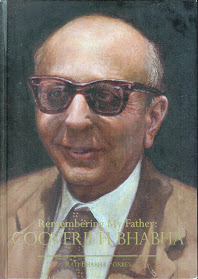Since disclosure of personal financial interest and investments of people in high public office is a subject of so much discussion currently, after the second report of Hindenburg Research in August 2024, it is worth putting in the public domain some archival material that I have had access to while researching and writing the text of a personal biography of Cooverji H Bhabha, independent India’s first commerce minister.
This material shows that probity in public life is not a subject matter of mere legislation or rule-making. It depends on the moral fibre of a society and the ethical values of a person. After all, laws have to be implemented by administration and enforced by a judiciary – if they are bereft of morality and ethics, we can make the best laws in the world, but they will be observed more in their breach. As BR Ambedkar had said: “...however good a Constitution may be, it is sure to turnout bad because those who are called to work it, happen to be a bad lot. However bad a Constitution may be, it may turn out to be good, if those who are called to work it, happen to be a good lot.” (Quoted by Meera Emmanuel in https://www.barandbench.com/columns/dr-ambedkar-1949-constituent-assembly-speech).
So you can lay down codes of conduct for people in high public office, but if they lack the ethics and morality, it will be an infructuous exercise.
The documents here show that Cooverji Bhabha, on his appointment as a Member of the Interim Government of India under Lord Mountbatten wrote to Jawaharlal Nehru who was then the Vice President of Executive Council of that Government, declaring his financial assets.
The Interim Government was sworn in on 2nd September 1946, Mr Bhabha’s letter, dated 8th September, states "As informed to you the other day, I am connected with several companies either as director or shareholder. I enclose herewith a list of companies in which I am a shareholder in my own rights or as a joint holder or as a beneficiary or as a Trustee. I have resigned as a Director from all the companies where I was a Director. However, I am a Shareholder of these companies as per the list, including private limited companies. You may if you think right, communicate this matter to our other colleagues as well as to H.E. the Viceroy."
The letter had a three page enclosure listing the names of companies in which he had a shareholding and those in which he was a director. We had word-processed the list since it was a copy on flimsy paper - which were used those days as copy sheets of typed documents. These archival documents are in the personal collection of the Bhabha family.







